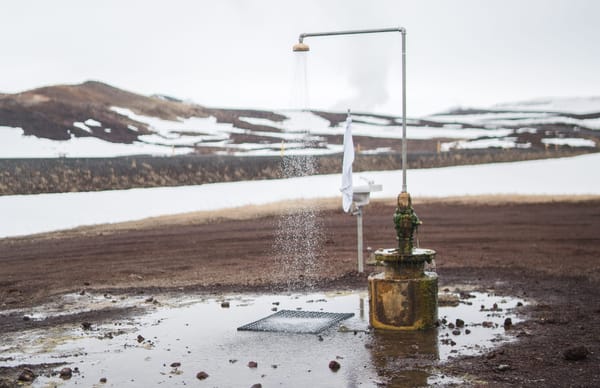Table of contents
For the last 30 days I've been taking cold showers every morning. I noticed they were having a positive impact on my mental health and I wanted to know why. In this article, I'll take you through how cold showers can impact your mood, focus and metabolism.
Why Cold Showers?
You may be wondering why I'm not talking about ice baths. There's more research behind them and they seem to be everywhere currently. I have a problem with them. I look for tools that we can use everyday, and I simply don't think ice baths are accessible to everyone. Firstly, due to cost, but also due to inconvenience. There's no excuse to not turn your morning shower to cold; I can think of 1000 excuses not to set up and ice bath in the morning.
The Impacts of Cold Showers
When a study put participants into 14℃ (57℉) water for 60 minutes they found the following 3 things:
- a 250% increase in dopamine that was long-lasting;
- a 530% increase in noradrenaline and;
- a 350% increase in metabolism.
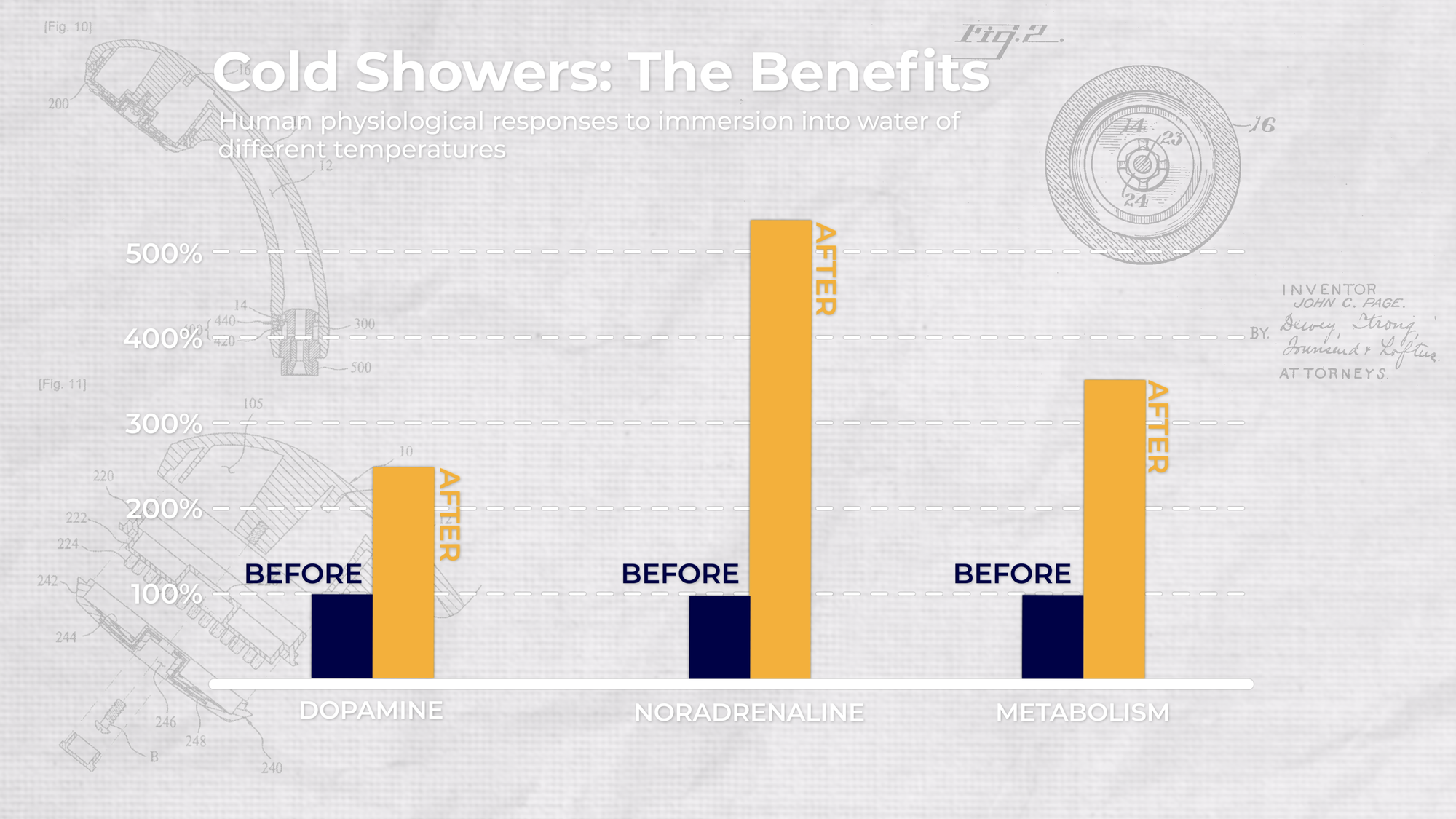
Please note: While cold showers won't have identical impacts to cold water immersion, the physiological mechanisms are still applicable. The rises may not be precisely the same, but the principles apply nonetheless.
Enhancing Mood
All the dopamine news we see is usually bad. It's always associated with our addictive phones and addictive algorithms. But it isn't a villain.
A 250% increase in dopamine is comparable to the rise you get with sniffing cocaine. So how is it different? The rise in dopamine is long-lasting, taking up to 3 hours to come back down.
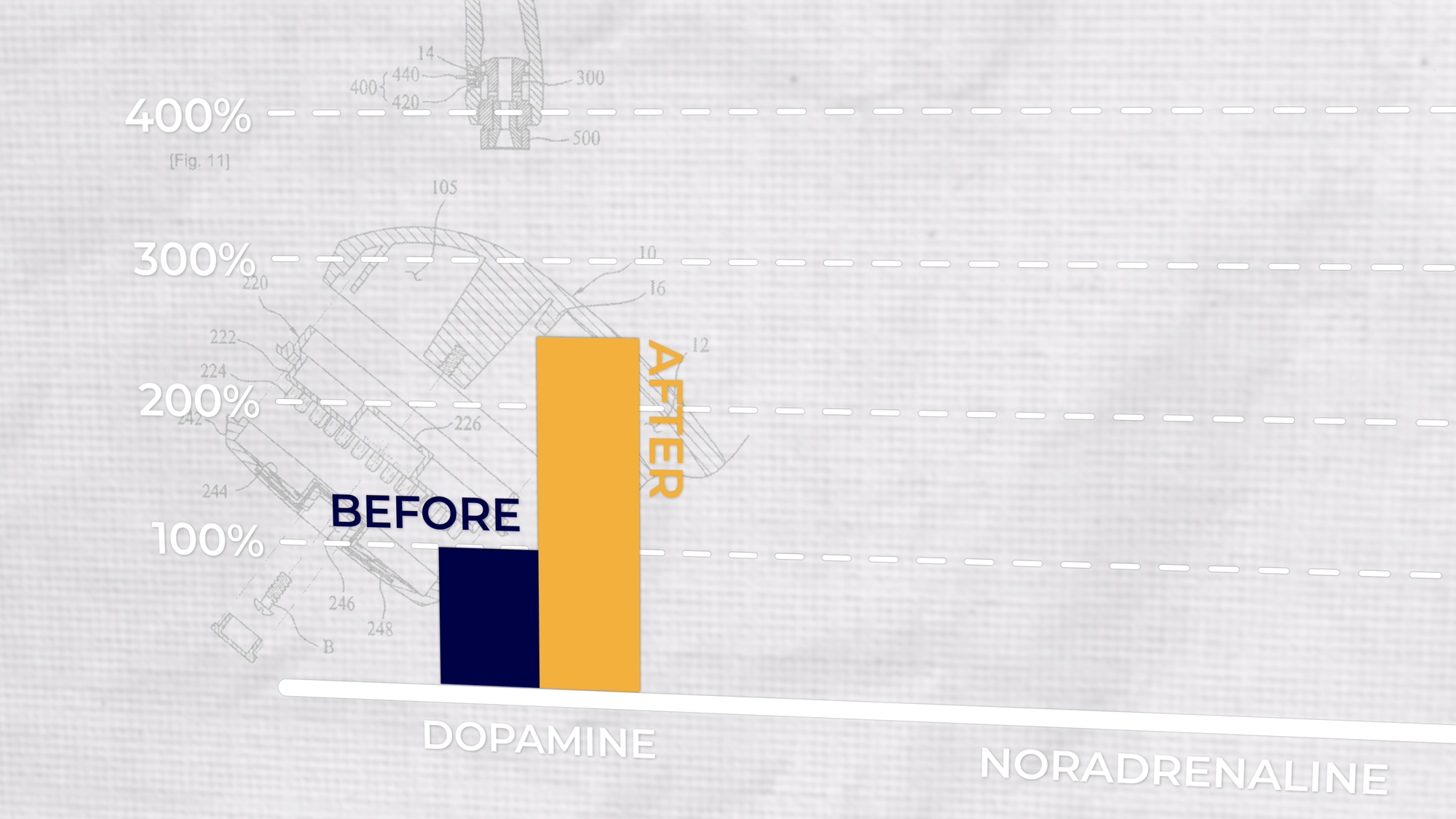
Dopamine reinforces behaviours. If you take cocaine, you get a spike of dopamine. But following this, your dopamine level will drop below baseline causing you to feel pain, and crave more.
This introduces a key principle: Pleasure and pain sit in balance with one another. If we experience one, our bodies want to compensate—bringing us back into balance—it does that by swinging us the other way.
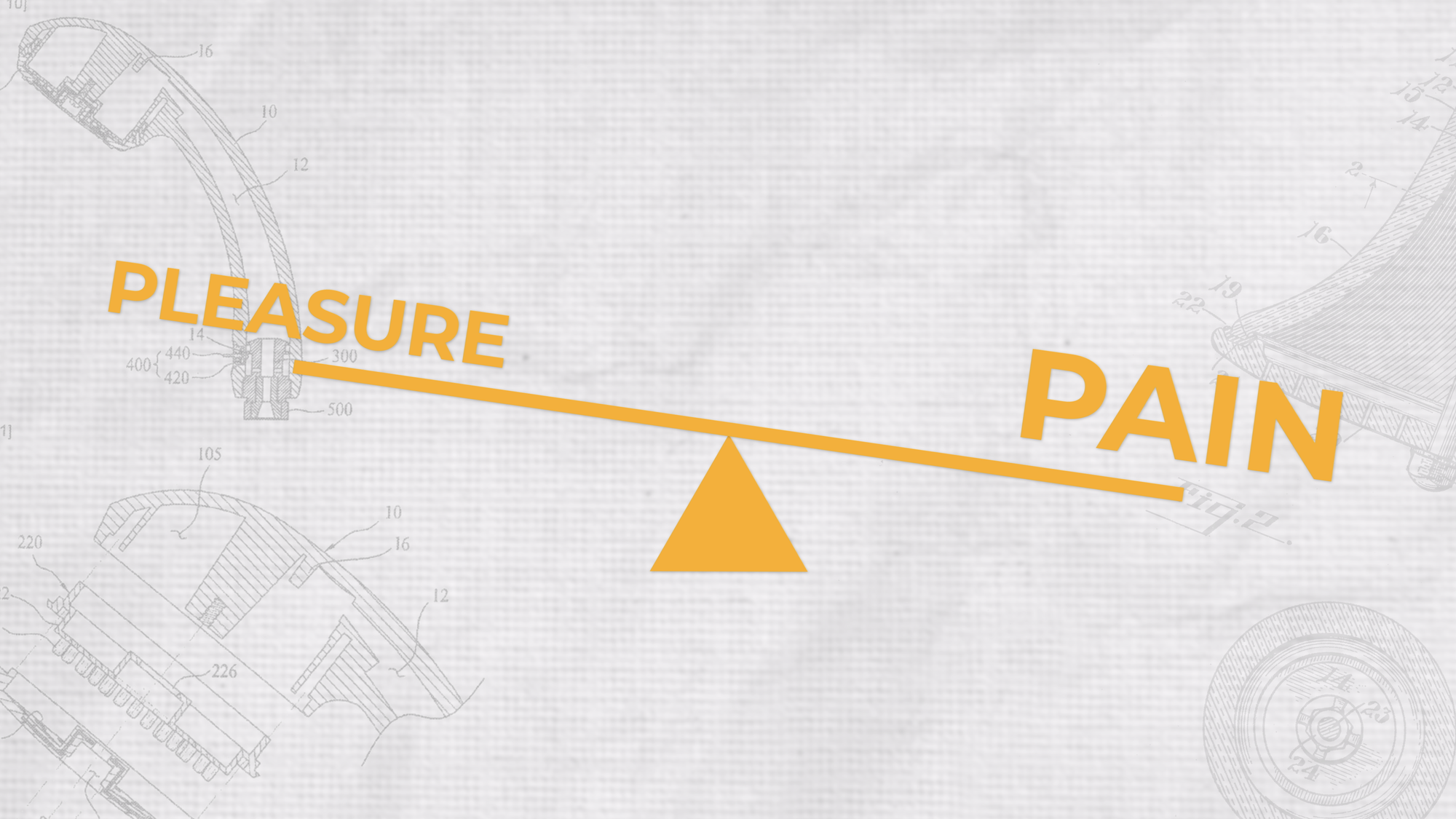
What does that have to do with cold showers? By throwing yourself under that cold water, you're voluntarily stepping into pain. If we're in pain, our physiological response to that is to shift the balance. Shifting to pleasure. While we’re in pain, we compensate by releasing dopamine, noradrenaline, serotonin, and even our very own opioids.
The beauty of cold water is that as a compensation for pain, we don't get a fast rise and fall of dopamine. Instead, we get a prolonged rise without the subsequent pain and cravings. To read more about this, take a look at Anna Lembke's book Dopamine Nation. She's brilliant.
Enhancing Energy & Focus
Through voluntary exposure to pain, we spike our stress hormones. That 530% increase in noradrenaline translates into energy for your brain that you can then apply to your tasks.
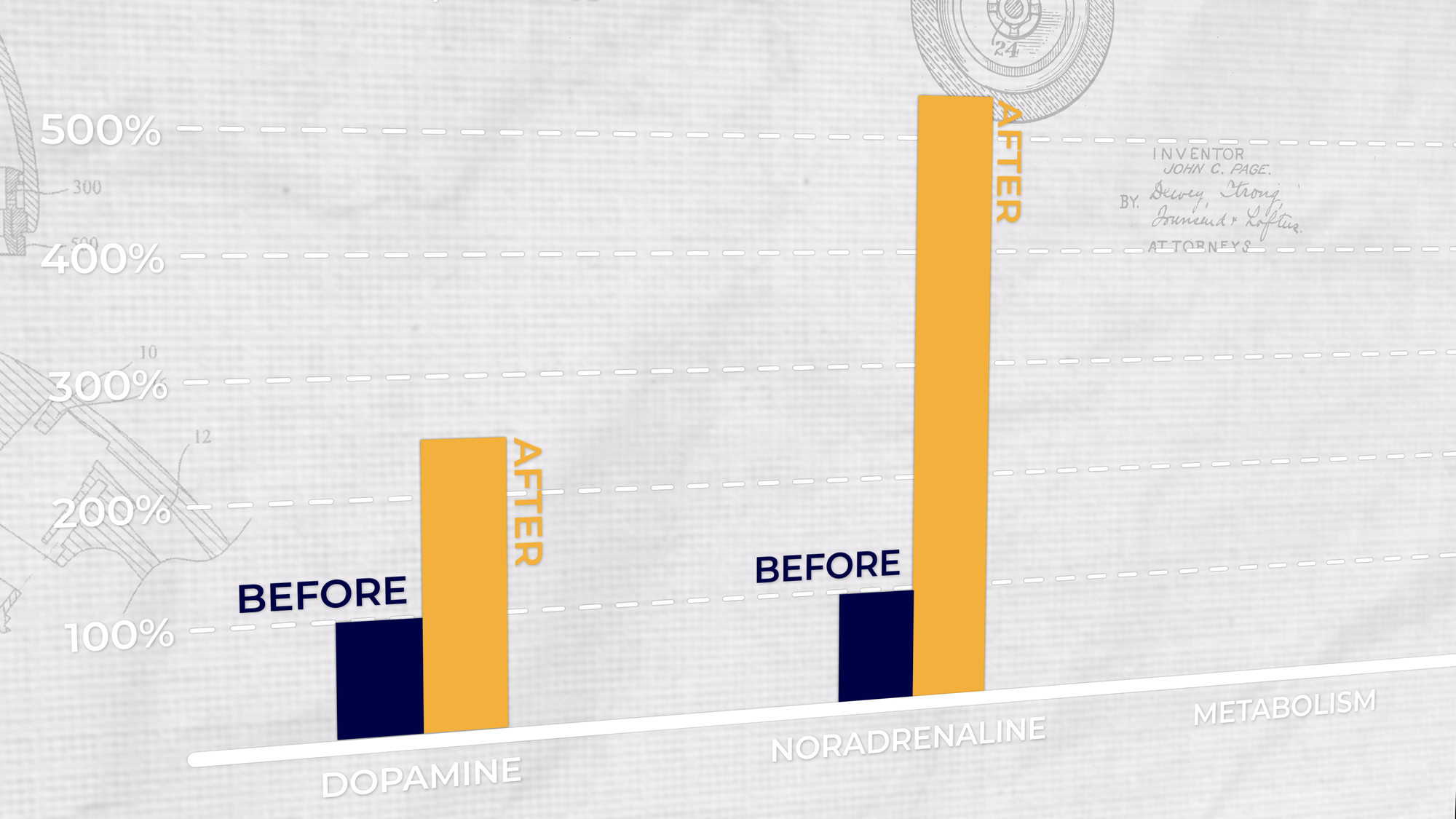
Here, it's important to differentiate between eustress and distress. Eustress is the positive—Goggins stress—that we can derive energy and focus from; it's associated with rises in noradrenaline and adrenaline without rises in cortisol. Distress is perceiving negative threat rather than positive challenge. Anxiety over excitement. Fatigue over focus. Distress is characterised by rises in cortisol, in addition to the other stress hormones.
Cold water exposure didn't spike cortisol, placing it into our category of use stress.
Rather than just counting how long you've been in for, the Huberman Lab “Counting Walls” approach is an adaptive protocol that takes into account how you're feeling each day. Feeling demotivated? Getting over that first wall of just turning the shower to cold might be enough. Feeling very motivated? Dive over that first wall of getting in, you may enjoy the first 30 seconds. Then hit the next wall. Power through until you're over that second wall. Huberman's protocol adapts to how you're feeling each day.
Cold exposure impacts your brain physically through shifting chemical messengers, impacts your psychology by placing hurdles in front of you, but also has profound impacts below the neck.
Enhancing Metabolism
Cold exposure affects your metabolism in both the short and long-term.
It causes a 350% increase in your metabolism while it's going on. While you're shivering, you're increasing fat breakdown. Realistically, though, that doesn't translate to a large number of calories burned. The real benefits lie in the long-term changes.
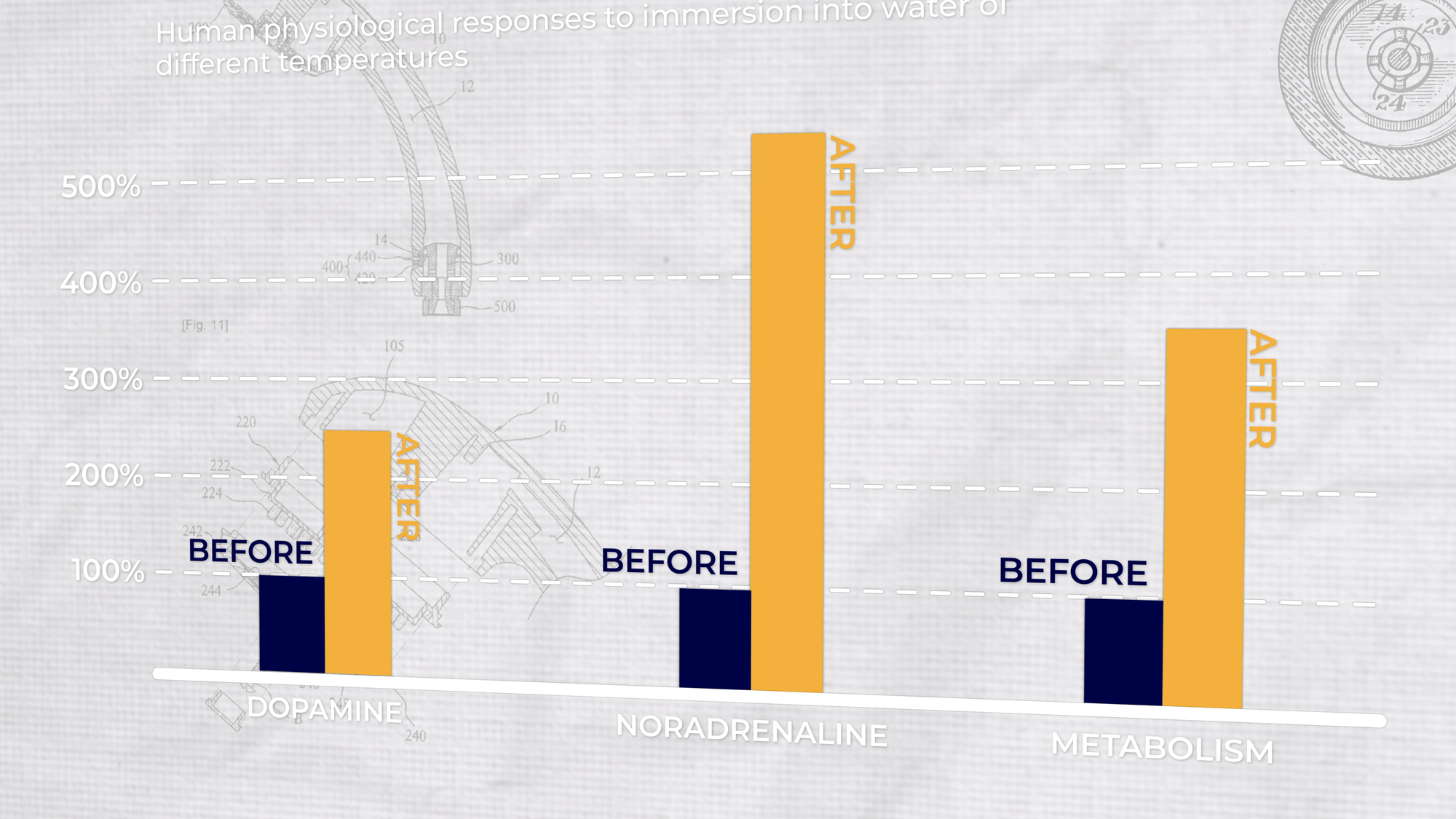
As you expose yourself to cold water, your body adapts. The adaptation is in the type of fat cells that you have. There are white fat cells, and brown fat cells. Cold water exposure causes us to convert white fat into brown.
White fat cells are the equivalent of putting your money into the bank. It doesn't do much while it's there, but it's ready to be invested if you need it. Brown fat cells are like a side hustle. They're running in the background, making you some extra pennies on the side; or in the case of the fat, burning you some extra calories on the side.
Common Questions & Actionable Answers
- How cold? A temperature that makes you think 'I want to get out', but that you can comfortably tolerate. We don't want you having a heart attack.
- Cold shower or ice bath? There are very few studies on cold showers, however, as I said earlier, we can transfer the physiological principles across. For that reason, ice baths submerging yourself up to the neck is more effective. If you have access and want maximal results, dive in!
- How long per week? 11–15 minutes is a good starting point, but for a total newbie, you may want to start with 3. For Wim Hof, he'll probably settle for much longer. Find a time that works for you.
- When should I do it? Leverage the increases in alertness, focus and motivation discussed above by placing your cold water exposure early in the day. That increase in alertness may also impact your sleep so early is better.
- Can I start my shower with cold? Yes of course, but ending with cold is better. Take advantage of the Søberg principle. By allowing yourself to naturally warm up, you increase the metabolic effects.
Stay Connected
I post new videos on YouTube every other week. Please subscribe to support these videos, and I hope they can help you build healthy habits! If you aren't subscribed to the Healthy Habits Newsletter, consider joining to get actionable insights to help you live healthier.
Thank you for your time and interest,
Jack
